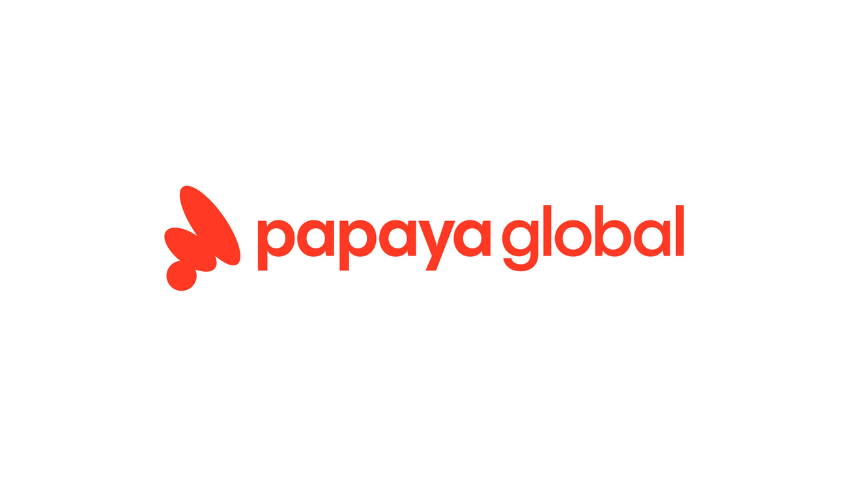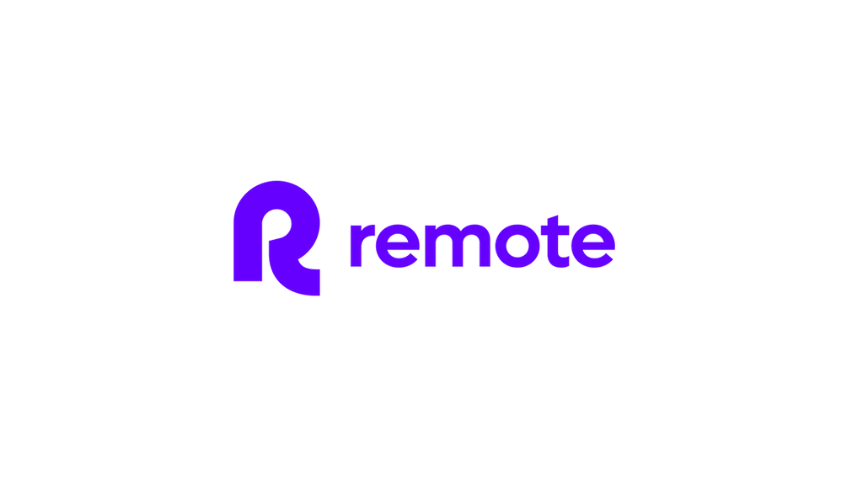There are three ways to hire international workers for your business.
Use contractors. This is the easiest way as long as you classify them correctly.
Hire an Employer of Record (EOR) in the country where your foreign workers are located. This entity takes over all employee responsibility on your behalf. You cede all control in this model.
Set up a wholly-owned subsidiary in the country where your employees are located. You’re responsible for managing everything related to these employees, including payroll.
There are pros and cons to each strategy. There are also a ton of solutions out there to manage international payroll. You don’t need a ton of options, you need the best options.
The Best International Payroll Services – Quick Recommendations
Here are the best international payroll services you should consider.
- Papaya Global – Best aggregator
- Remote – Best wholly-owned model
- Deel – Best contractor management
International Payroll Terms You Need to Know
If you’re new to international payroll, these are some key terms you should know.
- EOR (Employer of Record) – a third-party entity that assumes legal responsibility for all employment-related matters for a business, including payroll, taxes, benefits, and compliance.
- ICP (In-Country Provider) – a local payroll service provider in the country where you want to hire employees.
- Global payroll – the process of managing payroll when you have employees located in different countries.
- Aggregator – an entity that manages multiple ICPs to help a business streamline its global payroll.
- Wholly-owned subsidiary – a company that has its own distinct legal entity but is 100 percent owned by another company (usually called the parent company).
Papaya Global’s Aggregator Model Is Flexible with Wide Coverage but Support May Be Slower Than You’d Like

If you have workers located around the world, Papaya Global is an excellent option for managing all that international payroll.
Papaya streamlines payroll, whether you plan to hire employees globally or use international contractors. With local currency payouts in more than 160 countries, you have practically limitless freedom to hire or contract around the world.
Papaya makes contractor management easy. You can onboard, manage, and pay your global contractors all in one place. Contractors get dedicated portals where they submit invoices, automating the process which means less work on your side.
Papaya uses automations to reduce the time you’ll spend verifying and processing payments. When you’re ready to pay, it just takes one click to pay all your contractors. You can issue a single bulk payment, which is disseminated to individual contractors in their local currencies.
You can also go the EOR route and let Papaya take over employee hiring and management. Papaya maintains designated country expert teams in 160+ countries. These teams know local legal and HR compliance issues in their jurisdictions inside-out. This gives you total peace of mind.
Papaya uses an aggregator model when it comes to ICPs. They have built a network of fully-vetted ICPs in each country, giving you flexibility and options. If you’re not happy with one ICP for any reason, you can smoothly transition without gaps or interruptions to one better suited to your business needs.
Papaya’s built-in payment processing system can issue payments in the 14 most popular currencies, including USD, GBP, EUR, CAD, AUD, NZD, SGD, HKD, AED, CHF, SEK, DKK, PLN, and CZK. Need to pay a worker in a currency not listed? You can create a local wallet to fund and pay accounts in whatever currency you need.
Papaya also claims it can connect to any third-party HR software on the market today. This is a big selling point, since it frees you from having to switch systems to use Papaya. If you can’t find your existing HR software on their list of existing connectors, you can request to have your system connected.
Papaya also offers 24/7 customer support through the Papaya personal portal and dedicated WhatsApp chat channels. This means help is at your fingertips day or night, anywhere around the world.
I definitely think Papaya is a great option for international payroll. But there are a few downsides to consider when going the aggregator route. These are potential pitfalls for any aggregator service, not just Papaya.
- Adding a middleman to the mix can mean you end up waiting longer to resolve issues or complete basic tasks like getting new hires onboarded.
- Centralizing all your international payroll into a single point increases your vulnerability to disruptions or downtime–if your aggregator has a problem, your entire payroll system is at risk.
I think Papaya mitigates these potential downsides really well. It’s why Papaya is included on this list.
Remote Is Cheaper for EOR and More Expensive for Global Payroll

Remote is another great option for businesses with international payroll needs. It does most of the same things as Papaya Global in terms of EOR, contractor management, and global payroll. No need to rehash those here.
I want to focus on what makes Remote unique.
Remote offers a global HR platform that lets you set up, manage, and run your multi-country payroll process in a single dashboard. No matter how many wholly-owned subsidiaries you have around the world, Remote brings them all together effortlessly.
Remote’s dashboard is intuitive and easy to use. It consolidates payroll, time tracking, expenses, paid time off, and all related employee functions in one place. Doesn’t matter if you issue payroll on a biweekly or bimonthly schedule or some other schedule altogether, Remote can manage it.
And Remote breaks payroll down on a country-by-country basis, making it quick and easy to see the big picture and drill down to employee level details.
You’ll also get protection for your most valuable asset–intellectual property rights (IPR). Remote IP Guard seamlessly manages the process of assigning or transferring IPRs from the employee to your business during the onboarding process.
Remote also has a great mobile app for employees. It lets them track expenses, request time off, and see payslip information on demand. The app also streamlines things for managers and the HR team, since they won’t have to spend time fielding common questions from employees.
It won’t cost extra to pay employees with Remote, since there are no per-employee fees charged on top of the subscription costs. If you have a lot of employees to pay, these savings will add up fast. Contrast this with Papaya who does charge fees, although exact fee amounts are unclear. Papaya’s website simply mentions “per employee costs below 1%.”
Remote also offers some add-on services you won’t find with Papaya, including optional indemnity coverage for contractors and its Remote Talent global recruiting tool. Remote Talent starts at $119/month and you don’t need to be a Remote payroll customer to use it, either.
There’s a lot to like about Remote, but there are a few shortcomings you should be aware of.
- Remote doesn’t have its own payment processing service (unlike Papaya), but instead relies on third-party service providers which can lead to more fees and slower payments.
- Remote’s reach is a bit less than Papaya’s in several regards, with EOR services in just 84 countries (Papaya offers 160+), and global payroll in just 21 countries (Papaya in 160+). You can, however, pay contractors in 200+ countries, which is more than Papaya offers.
- There are stricter cut-off dates and fewer off-cycle payments than Papaya.
- Remote offers fewer ICP options to choose from in each country.
Even though there are some drawbacks, I still think Remote is a great option, especially if you are running subsidiaries in a bunch of countries.
There is one other nice feature I want to call out and it has to do with pricing. Remote offers discounts for startups and nonprofits. It also charges nothing when you hire refugees to fill roles.
This is really unique in the industry, and something that tells you a lot about Remote’s corporate values and ethos. I like it a lot.
Deel Has the Strongest International Contractor Management Features + Immigration Support

If you’re focused on using international contractors, Deel is an excellent option. It’s what I use in my own business to manage my global contractor team. Things run like clockwork, I’ve had no problems whatsoever, and am really happy with my decision.
But that’s not why Deel landed on this top list.
Deel is included because it’s really, really great at helping you manage contractors. It’s also good at EOR and global payments, but contractor management is its sweet spot.
Anyone managing a global team of contractors knows how difficult it can be. And if you don’t know yet, once you start bringing them on the team you’ll quickly become aware. Deel takes the guesswork out of it with streamlined, automated onboarding.
One big concern when onboarding contractors is compliance. Deel offers Continuous Compliance™, a feature that guarantees locally compliant agreements for 150 different countries. It also incorporates an AI-powered misclassification tool that helps you classify workers with 90 percent accuracy. Many providers don’t offer any contractor compliance help, let alone at this level.
Deel’s Compliance Monitor™ flags changes in local labor laws, tax laws, and possible compliance issues. Then it provides an action plan you can implement right away. This strategy helps you fix minor issues before they become expensive mistakes.
Deel is also very contractor-friendly for the end user. Your contractors can create and send invoices directly on the platform and choose from 15 different payment options in 150 different currencies. It all happens seamlessly, with zero effort or input from you.
There’s even a Deel Visa card that lets contractors keep their funds in US dollars no matter where they live. They can use the card to shop online and in person, and funds get loaded immediately on payday.
Deel has really flexible deadlines for payroll. It also gives you the ability to do a one-off payroll run anytime you like. The Deel dashboard lets you stay on top of your payroll budget with easy to understand reports that give you real-time data.
I have one person managing a team of 30+ freelancers and she’s never had an issue while using Deel to onboard or pay them.
Other ways that Deel stands out from its competition, including Papaya and Remote, include:
- Immigration and visa services – Deel’s in-house immigration team handles the visa process from start to finish in 30+ countries, so if you have a contractor you want to convert, it is easy with Deel.
- Background checks – Hire with confidence when you use Deel’s automated background checks in 190+ countries.
- Global equipment provisioning – Make sure people have the equipment they need no matter where they are. Ship, track, and manage devices from your dashboard.
- Workflow automation tools – Use Deel’s free Workflow Builder to automate repetitive tasks like onboarding, equipment issuance, training assignments, and contract creation.
Deel is built on a hybrid model. While Deel outsources payroll to ICPs, it uses its own infrastructure in 100+ countries that includes in-house professionals in each country. Reducing the points of contact or data transfer requirements reduces the chance for errors or miscommunication.
Deel is a solid option, especially for businesses that leverage international contractors. Still, there are a few considerations, including:
- Payroll services are available in 100+ countries, less than Papaya’s 160+ but more than Remote’s 21.
- Pricewise, Deel (starting at $49/month) is more expensive than Remote (starting at $29/month) for contractor management services.
All things considered, if your main focus is managing contractors, you really can’t go wrong with Deel.
The Truth About Running Global Payroll? It’s a Nightmare
I’m not going to sugar coat things. Running global payroll can be a bottomless pit of horror.
I really recommend that whenever you can, you hire contractors rather than employees when working across borders. It seriously makes everything ten times easier.
I have many international contractors on my team, and paying them is no harder than paying a domestic freelancer.
If, however, you cannot hire someone as a contractor (for whatever reason), think long and hard before making that hire.
Every company on my list works hard to make things as painless as possible for clients with international employees. The truth is, despite the glossy websites and bright marketing talk, it still takes a lot of manual work–on their part and yours.
Drafting locally compliant paperwork, bringing data together from diverse countries, managing currency exchanges, and conforming with local laws takes effort. There are just too many moving parts for the process to be seamless or stress-free. Especially if you’re involved with workers in more than one or two countries.
Of course, businesses with a truly global presence have the resources and manpower to manage all of this. For them, this is just another cost of doing business.
But most people reading this are not part of a global empire. Most of you are startups or small- to medium-size businesses. Like me.
This is exactly why I never, ever hire in-house employees outside the U.S. No matter how easy a service provider promises me it will be. Because it won’t.
What Really Matters when Choosing an International Payroll Provider
I’ve covered a lot at this point. But what really matters when choosing an international payroll provider comes down to four questions. The answers to all of them should be yes before you sign up for services.
- Does the service work like you need it to work (e.g. EOR, contractor, global payroll) in the countries you’re hiring in?
- Does the service provider take care of compliance and tax issues for you?
- Can you afford it?
- Do you feel like you and the company will work well together?
That’s it.
